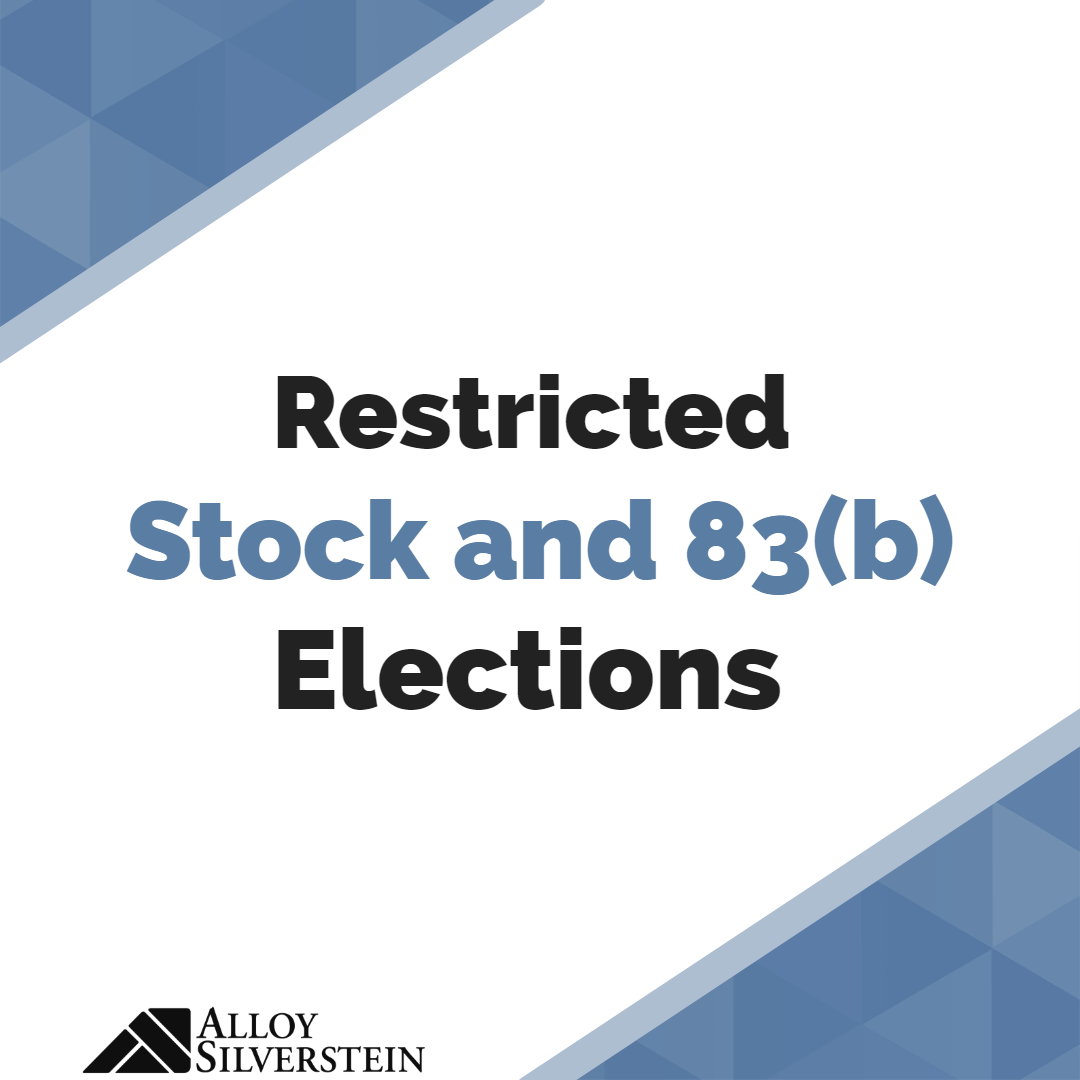
Many businesses looking for high growth will offer their employees the chance to purchase stock of the company. It’s also a common technique used in venture capital markets. The stock being purchased is often restricted stock, meaning that it’s subject to a vesting schedule over a number a years. In other words, an employee may not get to keep all of the stock purchased if he or she left the company before the vesting schedule was complete.
What should you do if you’re given the chance to buy restricted stock? Are there any tax implications of doing this? Let’s find out.
Vesting is a technique that is meant to protect the company from outsider control. Essentially, it’s a waiting period before you control all of the stock that you’ve purchased. Vesting periods are usually time based, but they can also be milestone based or a hybrid method. Most of my clients have dealt with time based vesting schedules that last four years with a one year cliff, meaning one year of employment has to pass before they receive any of the stock they are purchasing. Here’s a brief example:
John Doe works for ABC Company, Inc. and is buying 100,000 shares of restrictive stock subject to a four year annual vesting schedule with a one year cliff. On day 1, John doesn’t get any of the stock due to the one year cliff. After one year, John will be able to purchase 25,000 shares of the restrictive stock. After the second year, John gets to buy another 25,000 shares of stock, and so on until he finally has bought all of the stock after the fourth year. Note that if John left the company one year and six months into the vesting period, he would only get the first 25,000 shares he purchased.
When you receive something as compensation, the IRS will tax you on it. Receiving stock as part of your compensation package is no different. The company will calculate the value of the stock and then include it in your wages for that year which is reported to the IRS on your annual tax return. Things get a little tricky if you’re getting stock with a vesting period. Under Section 83(a) of the Tax Code, the IRS states that the value of the stock wouldn’t be included in your taxable income if it’s subject to substantial risk of forfeiture. In English: if it’s not vested it shouldn’t be included in your wages. Seems like a good deal, right? Well, maybe not. What happens if the company has a huge amount of growth between vesting dates? The stock value is likely to take off and you’re going to have a huge tax bill to deal with because you’ve got to include it in your income. Is there a way to avoid something like this from happening?
Consider making an 83(b) election. It’s perfect for situations like this. The basics of this election are that you tell the IRS that you’d like to include the entire value of the stock subject to a vesting schedule in your taxable income immediately. Rather than paying the tax as the stock vests, you’re going to accelerate the taxable event. A simple example will show the benefits of making this election:
Jane Doe is granted 80,000 shares of restricted stock in XYZ Company worth $1 per share. The vesting schedule is for four years. After the first vesting period passes, the stock is worth $5 per share. The stock is worth $10 per share after the second vesting period. The stock is worth $15 per share after the third vesting period. The stock is worth $20 per share after the final vesting period.
| 83(b) Election | No 83(b) Election | |
| Taxable Income at Time of Grant | $80,000 | $0 |
| Taxable Income at First Vesting Period | $0 | $100,000 |
| Taxable at Second Vesting Period | $0 | $200,000 |
| Taxable Income at Third Vesting Period | $0 | $300,000 |
| Taxable Income at Fourth Vesting Period | $0 | $400,000 |
| Total Taxable Income | $80,000 | $1,000,000 |
The only difference in the scenarios above is that one person made an 83(b) election and the other didn’t. It’s clear that making the 83(b) election would decreased taxable income by $920,000 for this individual.
As you can see, there are opportunities for savings when purchasing restricted stock. Do you think an 83(b) election may be helpful to you? Give us a call and see how we can guide you through your specific tax situations and help make the best decision for you.

Associate Partner
Ren III provides tax, accounting, and advisory services to a broad range of clients, with a specialty for manufacturers, title insurance companies, and professional service providers.
View Ren III's Bio → Follow @R3CPA on Twitter →